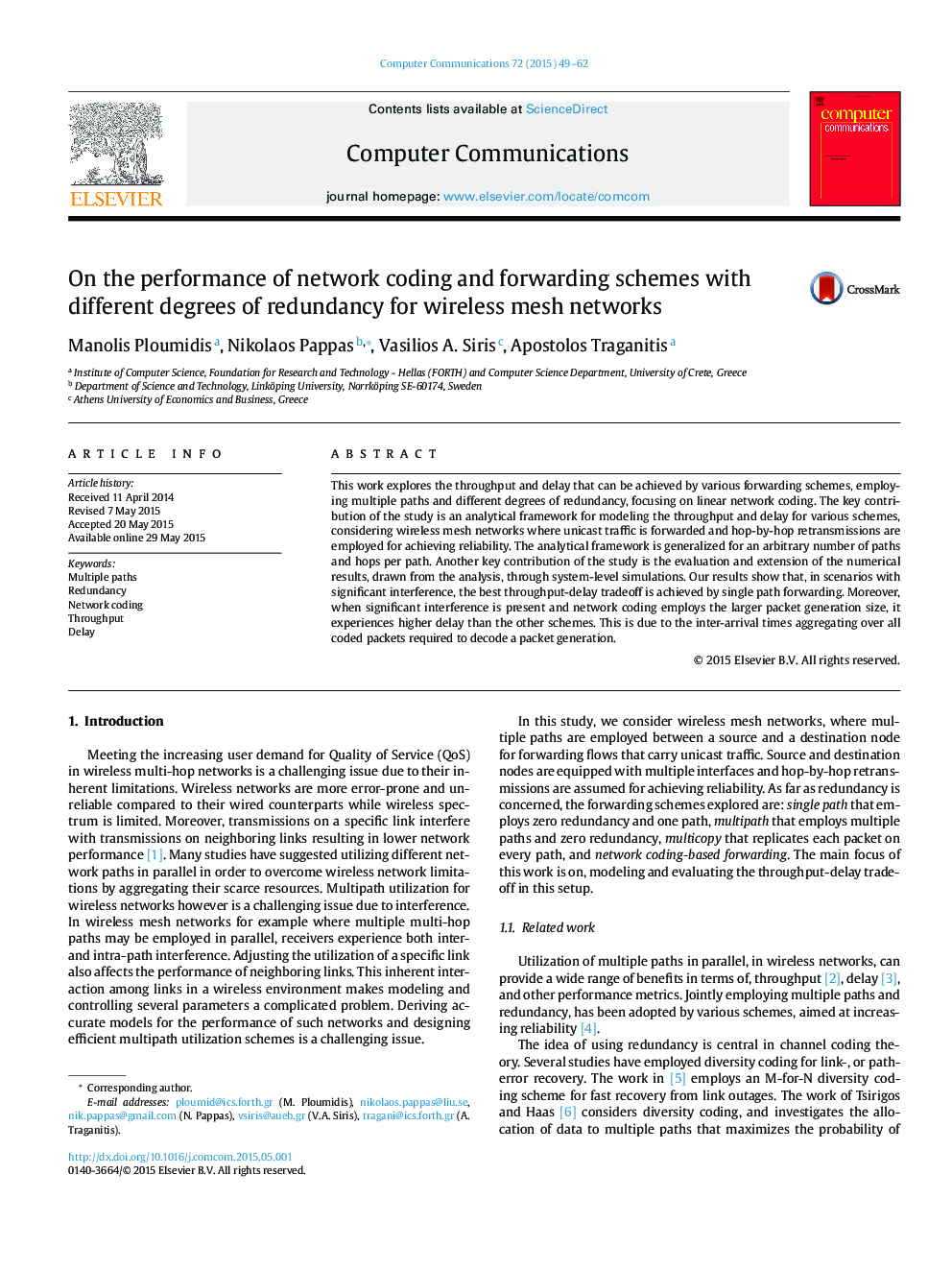| Article ID | Journal | Published Year | Pages | File Type |
|---|---|---|---|---|
| 447650 | Computer Communications | 2015 | 14 Pages |
This work explores the throughput and delay that can be achieved by various forwarding schemes, employing multiple paths and different degrees of redundancy, focusing on linear network coding. The key contribution of the study is an analytical framework for modeling the throughput and delay for various schemes, considering wireless mesh networks where unicast traffic is forwarded and hop-by-hop retransmissions are employed for achieving reliability. The analytical framework is generalized for an arbitrary number of paths and hops per path. Another key contribution of the study is the evaluation and extension of the numerical results, drawn from the analysis, through system-level simulations. Our results show that, in scenarios with significant interference, the best throughput-delay tradeoff is achieved by single path forwarding. Moreover, when significant interference is present and network coding employs the larger packet generation size, it experiences higher delay than the other schemes. This is due to the inter-arrival times aggregating over all coded packets required to decode a packet generation.
